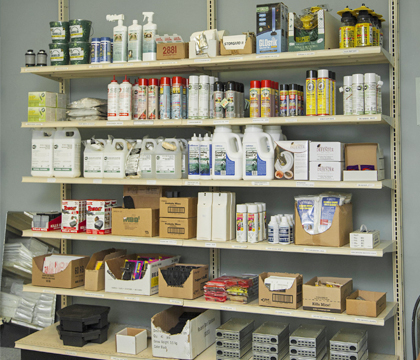Image Source: Google
Dealing with pests in your home and garden can be a frustrating experience. Hiring professional pest control services can be expensive, but with the right knowledge and tools, you can effectively control and prevent pests on your own. Here are some expert tips to help you safeguard your home and garden from unwanted intruders. If you are looking for DIY pest control supply store then you can contact Robards Pest Control.
Identify Common Pests
Recognize the signs of common household pests:
- Ants: Look for trails of ants or small piles of dirt near doors and windows.
- Rats and Mice: Check for droppings, gnaw marks, or nesting materials in dark corners.
- Cockroaches: Look for discarded exoskeletons, egg cases, or a musty odor.
- Spiders: Check for webs, egg sacs, or spiders themselves in dark, secluded areas.
- Termites: Look for mud tubes, discarded wings, or damaged wood in your home.
Prevention is Key
Keep pests at bay with these preventative measures:
- Seal Entry Points: Use caulk to seal cracks and crevices where pests can enter your home.
- Eliminate Standing Water: Remove sources of standing water to prevent mosquitoes and other pests from breeding.
- Store Food Properly: Keep food in airtight containers to avoid attracting ants, cockroaches, and rodents.
- Trim Shrubs and Trees: Trim foliage away from your home to prevent pests from using them as pathways.
- Keep a Clean Home: Regularly clean and declutter to eliminate hiding spots and food sources for pests.
Natural Pest Control
Use these natural remedies to control pests:
- Diatomaceous Earth: Sprinkle this natural powder in areas where pests are present to dehydrate and kill them.
- Essential Oils: Use peppermint, lavender, or eucalyptus oils to repel pests like ants, spiders, and mosquitoes.
- Vinegar: Mix vinegar with water and use it as a natural cleaning solution to deter ants and cockroaches.
- Citrus Peels: Place citrus peels near entry points to repel ants and spiders.
- Beneficial Insects: Introduce ladybugs, lacewings, or praying mantises to your garden to control pests like aphids and caterpillars.
DIY Pest Control Products
Stock up on these DIY pest control products:
- Traps: Use sticky traps for insects and rodents, and pheromone traps for specific pests like moths.
- Sprays: Make your own pest control sprays using ingredients like soap, essential oils, and garlic.
- Dusts: Use insecticidal dusts to target pests in cracks and crevices where they hide.
- Repellents: Create natural pest repellents using ingredients like garlic, chili peppers, or herbs.
- Electronic Devices: Invest in electronic pest repellers that emit sound waves to deter pests from your home.
Monitor and Maintain
Stay vigilant and maintain your pest control efforts:
- Inspect Regularly: Conduct routine inspections to catch pest problems early before they escalate.
- Monitor Pests: Keep track of the types of pests you encounter and the effectiveness of your control methods.
- Reapply Treatments: Follow up on treatments as needed and reapply products to maintain their effectiveness.
- Seek Professional Help: If your pest problem persists or worsens, don't hesitate to seek help from a professional pest control service.
- Share Knowledge: Educate yourself and others on pest control practices to prevent future infestations.
By following these expert tips for DIY pest control, you can safeguard your home and garden effectively without breaking the bank. Remember to stay proactive, consistent, and informed to keep pests at bay and maintain a healthy living environment for you and your family.
